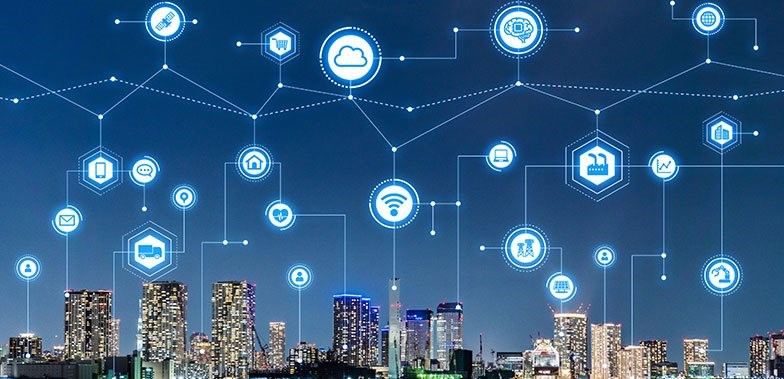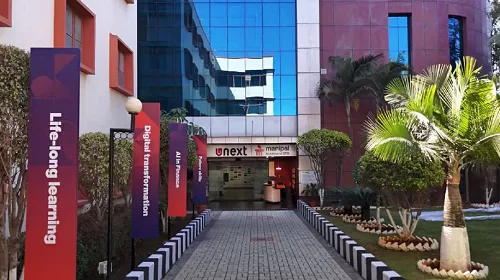By Vishal Kotadiya, V.P. Program Management, CIMCON Digital
Introduction:
The concept of smart cities has ignited a technological revolution, promising more efficient urban living, enhanced sustainability, and improved quality of life. One of the most critical aspects of building these cities of the future trends for water management. As urban populations grow and the threat of water scarcity looms, addressing water-related challenges becomes paramount. In this article, we will delve into the challenges faced by smart cities in water management and speculate on future trends in digital water technology. We will also explore how CIMCON Digital‘s solutions, including anomaly detection, IoT-enabled sensors, and machine learning, are leading the way in revolutionizing water management in smart cities.
Challenges in Water Management:
- Reducing Water Column: The challenge of reducing the water column, the depth from which cities draw their water, is central to urban water management. Efficiently monitoring and managing water levels is crucial to prevent waste and ensure a consistent supply.
- Scarcity of Water: The looming water scarcity crisis, exacerbated by climate change, makes it imperative for smart cities to use technology to optimize water usage and preserve this precious resource.
- Water Quality Monitoring: Ensuring the quality of the water supply is essential to protect public health. Smart cities must continuously monitor water quality, detect anomalies, and respond swiftly to any issues.
- Saving Water Through Automation and Control: Automation and control systems are vital for optimizing water usage in urban areas. However, implementing these systems effectively is challenging.
- Leak Detection: Water leaks are a major source of water wastage in cities. Detecting and addressing leaks promptly is essential for efficient water management.
- People Embracing Technology: In some cases, residents may resist new technologies for water management, making it challenging to implement IoT and digital solutions.
- Technology Maturity: Implementing digital solutions in water management requires mature technology, and smart cities may face difficulties in finding the right balance between innovation and reliability.
Future Trends in Digital Water Technology:
- IoT for Water Management: The Internet of Things (IoT) will play a significant role in water management, with sensors and devices providing real-time data on water levels, quality, and consumption.
- Advanced Sensors: The development of more advanced and cost-effective sensors will enable even more granular data collection, allowing cities to fine-tune their water management strategies.
- Video Analytics: Video analytics can be used to monitor water infrastructure for leaks, tampering, or irregularities. This technology can also ensure the security of critical water facilities.
- Machine Learning and Anomaly Detection: Machine learning algorithms will be used to analyze vast amounts of data for anomalies, which can signal potential issues such as leaks, contamination, or inefficiencies.
- Cloud-Based Solutions: Storing and processing data in the cloud will provide cities with flexibility, scalability, and the ability to access data and analytics from anywhere.
CIMCON Digital Solutions:

CIMCON Digital is at the forefront of innovative solutions that address these water management challenges:
- Anomaly Detection: CIMCON’s anomaly detection system leverages machine learning to analyze water data, instantly identifying any irregularities. By proactively addressing issues, cities can avoid significant problems, such as leaks, water contamination, or excessive consumption.
- IoT-Enabled Sensors: CIMCON’s IoT-enabled sensors are essential for real-time data collection. These devices continuously monitor water levels, quality, and usage, allowing for immediate response to changes or emergencies.
- Saving Water Through Automation and Control: CIMCON’s automation and control systems enable cities to optimize water usage. By leveraging real-time data, these systems adjust water distribution, pressure, and treatment, reducing waste and increasing efficiency.
- Leak Detection: CIMCON Digital’s solutions include advanced leak detection systems that use acoustic sensors to pinpoint leaks. This technology ensures swift action to repair leaks and minimize water loss.
- Machine Learning for Predictive Maintenance: CIMCON uses machine learning for predictive maintenance, analyzing historical data to predict when equipment or infrastructure may require maintenance. This helps cities proactively address issues before they become crises.
- Mature and Proven Technology: CIMCON Digital’s solutions are built on mature, reliable technology that has been tested and proven in various real-world applications. This ensures that smart cities can rely on these solutions for their critical water management needs.
Conclusion:
The challenges facing smart cities in water management are complex, but the potential benefits of efficient, digital water technology are immense. CIMCON Digital‘s innovative solutions, from anomaly detection to IoT-enabled sensors and machine learning, are leading the way in revolutionizing how cities manage their water resources. As technology matures, and as cities embrace these solutions, the future of water management in smart cities looks promising. With CIMCON Digital at the forefront of this transformation, cities have the tools they need to address water challenges head-on and ensure a sustainable, efficient water supply for their residents.





